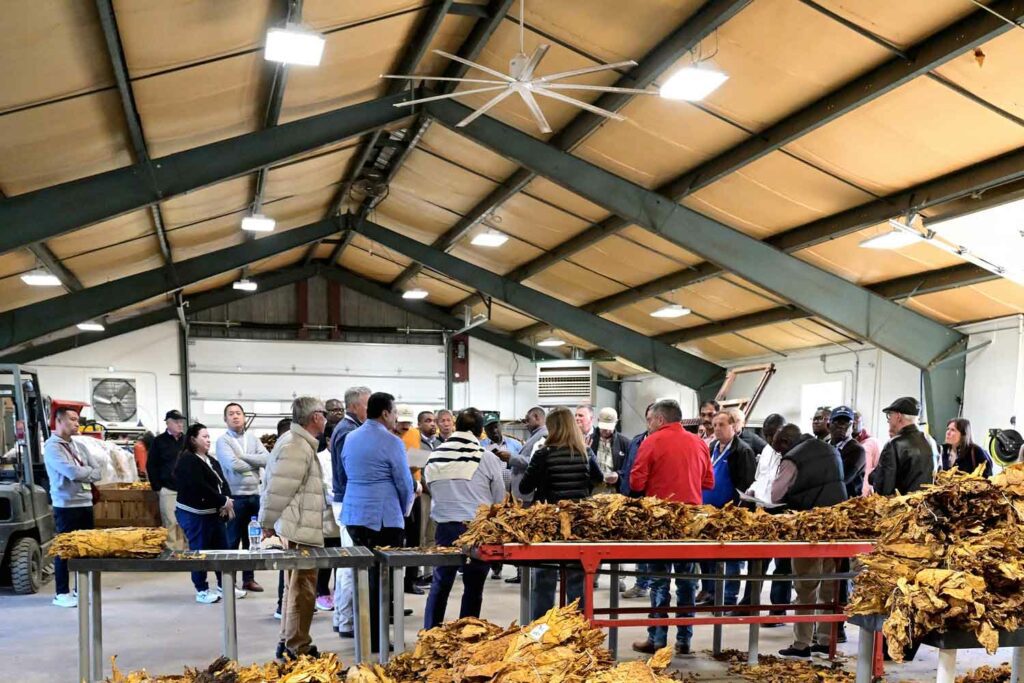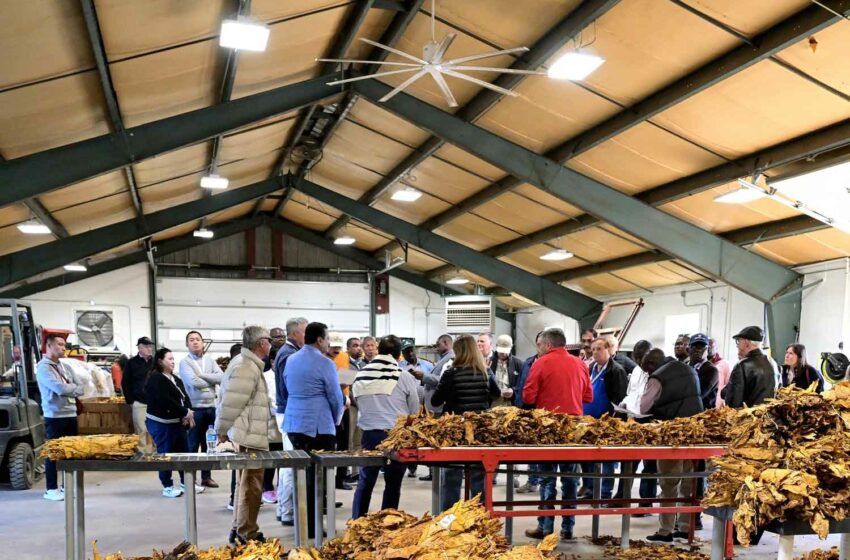
The Tobacco Growers Association of North Carolina (TGANC) hosted this year’s annual general meeting of the International Tobacco Growers Association (ITGA), Oct.15–18 in Raleigh, North Carolina, USA. Among other activities, participants visited one of the world’s biggest tobacco processing plants, witnessed a live auction and toured a research farm. ITGA members also re-elected ITGA’s President Jose Javier Aranda for another term.
During the event, leading agronomists shared their insights into global tobacco yields over the past decade. While the U.S., Brazil and several European origins registered increases, the overall picture is one of flat performance or even decline, which goes against trends in other crops like corn, soybeans and cotton.
During the open session conference, delegates had the opportunity to discuss ITGA’s global research in the U.S. context. Moderated by William Snell from the University of Kentucky, a panel comprising local growers revealed that the issues faced by growers worldwide are very similar.
Panelists also discussed the consequences of the U.S. tobacco buyout, which led to the creation of bigger farms and shifted production west but failed to boost yields.
TGANC Executive Vice President Graham Boyd moderated a discussion about the current marketing season, which continues to be characterized by leaf shortages. While some believed that the flue-cured and burley markets will regain equilibrium in 2025 and 2026 respectively, others predicted longer time frames.
Shane MacGuill, Euromonitor International global lead for nicotine and cannabis, presented the latest consumption trends. According to MacGuill, U.S. consumption patterns have been shifting in the context of overall flat nicotine volume evolution. Among the key drivers for the future of consumption, he said, will be a broadening of the nicotine universe and regulatory innovation, including sustainability and cost-of-living concerns.
Ivan Genov, ITGA manager for tobacco industry analysis, examined the key drivers in leading tobacco-sourcing countries. According to him, unfavorable weather patterns in prominent markets such as Brazil, Zimbabwe and the U.S. were a key contributor to decreased total global sales in 2024. The trend was bucked by a few markets, including Malawi, which enjoyed strong sales this year.
The U.S. regulatory perspective was presented by Benjamin Dessart, vice president of external affairs at Universal. Dessart explained the recent U.S. tobacco regulation policy shift and relevant proposed rules, which he said have the potential to impact the entire supply chain.
The global regulatory discussion was moderated by Michiel Reerink, international corporate affairs director and managing director at Alliance One International. Among other topics, Reerink touched on the European Union Corporate Sustainability Due Diligence Directive, which will require companies to closely examine their own value chains.












